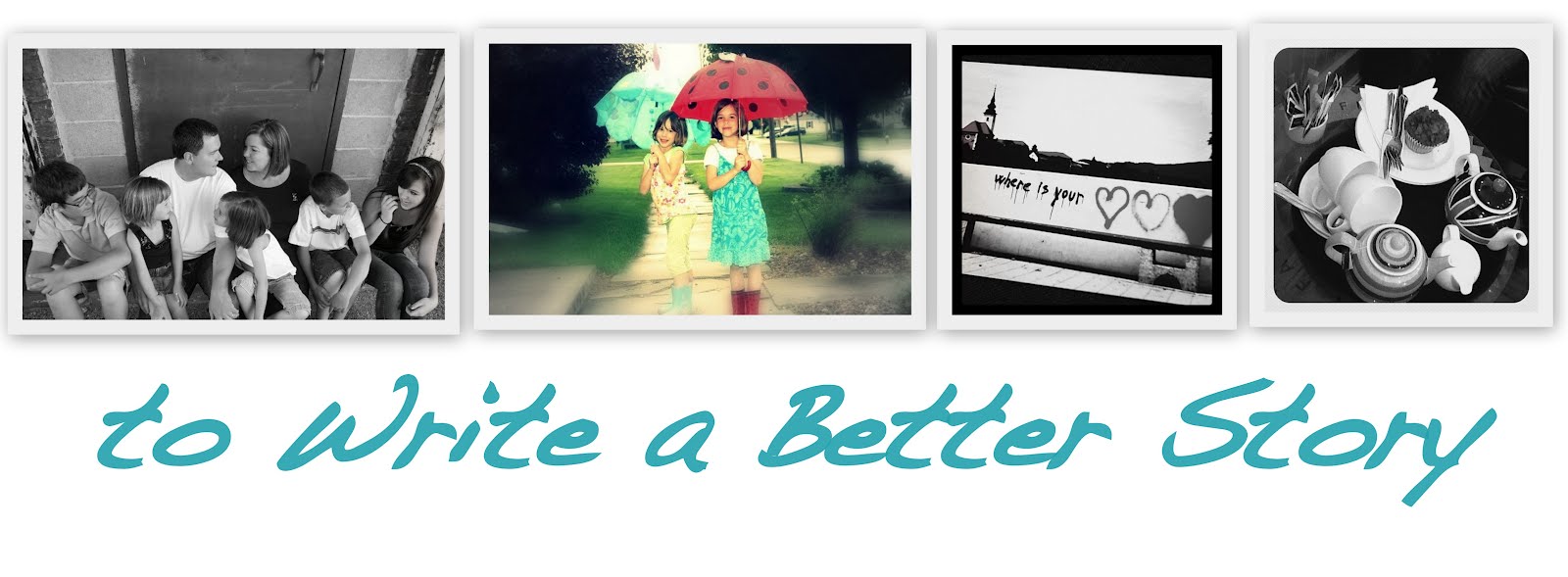Chapter 4, Exercise 2- The Conversation - pick a dear friend with whom you enjoy conversation and argument, and picture that friend reading over your shoulder as you sit down and revise any exercises to date.
from the previous exercise Memories I choose the memory of miscarrying to write as if I am telling it to my trusted friend.
My Miscarriage
There are some taboo conversations in the parenting world. When moms strike up small conversations in the park or over the booth in a restaurant we might acknowledge that we are exhausted, overstimulated, behind on the laundry or disappointed with our children's grades. But we will never admit that we often feel like we are an utter failure or that we had a miscarriage. It ruins the mood every time.
I had a miscarriage. And a DNC. And it was horrible.
Our daughter was 2 years old when we got pregnant for the second time. I worked part time. Aaron worked full time. We shared childcare duties and one car. I was about 10 weeks along when I began bleeding. It was a Friday. Aaron picked me up from work. He gently chastised me for looking so down, as if a few hours at school couldn't possibly been as depressing as I was appearing.
I've always been one to wear my emotions on my sleeve. Not that I mean to but often people can tell just by looking at me that something is wrong.
I couldn't have hid my worry from him if I wanted to. I blurted out that I was bleeding. He grabbed my hand and reassured me that it was all going to be OK. But I knew in my heart it wasn't.
I just knew.
I called the doctor's office when I arrived home. I explained my symptoms. They too, assured me that sometimes bleeding is a normal occurrence and not to worry. I was advised to rest over the weekend. I was instructed to call back only if it got worse.
It got worse.
Now, after office hours, I had the operator page the doctor. It was agonizing waiting for the phone to ring. I was near collapse as fear gripped my heart. I was compelled to go to the bathroom every few minutes. I just wanted to check, you know? I had to monitor whether it was getting better or worse. As it only got worse I felt more compelled to check. Until I was practically living on the toilet.
Still the medical advice was to wait it out.
I remember my heart wouldn't stop pounding. My tears would stop flowing. I was so afraid.
A few hours went by and I insisted I needed to be seen. Aaron drove me to the e.r. The wait was excruciating. I sat on the patient bed in a thin blue gown. I was shivering. Aaron just stood by me. I remember he looked so helpless.
While waiting for the OB Dr. to come in - the same one who told me to wait at home - I had to pee. I hobbled down off the bed, wet between my knees, to find a bathroom.
Just down the hall from my curtain was a single toilet. I locked the door, looked in the mirror and cried. I silently wept and prayed and wept. Wiping my face in attempt to pull it together I lifted my gown and sat on the toilet. It was then that I felt a large, warm rush.
It was horrible.
I'll never forget the sight. I stood there at the door to the bathroom. Refusing to flush for fear I would flush my baby away. Refusing to leave it there. I stood at the doorway. I stood guarding the toilet.
I knew the pregnancy was over.
I didn't need the Dr. to do the sonogram.
I didn't need him to tell me there was no more heartbeat.
I knew.
And I never felt more hollow in my life.
I needed surgery to stop the bleeding. Aaron kissed my head as they wheeled me away. I have never, to this day, seen him look that sad and broken.
When I woke later it was to the sound of babies crying. After surgery, because I was an OB patient - I suppose - I was placed on the same floor as all the new mothers, they're crying babies the first sound I heard. Not my baby. Their new babies.
While a woman next to me was cuddling and nursing her baby I was mourning.
While balloons and flowers were being delivered I was going home empty handed and empty womb-ed.
Over the years it's become apparent that those of us who have suffered this loss speak up only when we learn of another woman who has lost her pregnancy. Whether we know her well or not, we will feel compelled to hug her and hold her hand. We will cry with her and then we will tell her our story. Our eyes will gaze at each other softly communicating that we understand precisely how it feels. We are like an invisible army of women who only reveal our ranks when we must, when a comrade in our midst falls.
I had a miscarriage 14 years ago. Until until this writing assignment, you probably didn't know that about me. It is, after all, personal and complicated. Miscarriages stories are the silent unmentionables.


